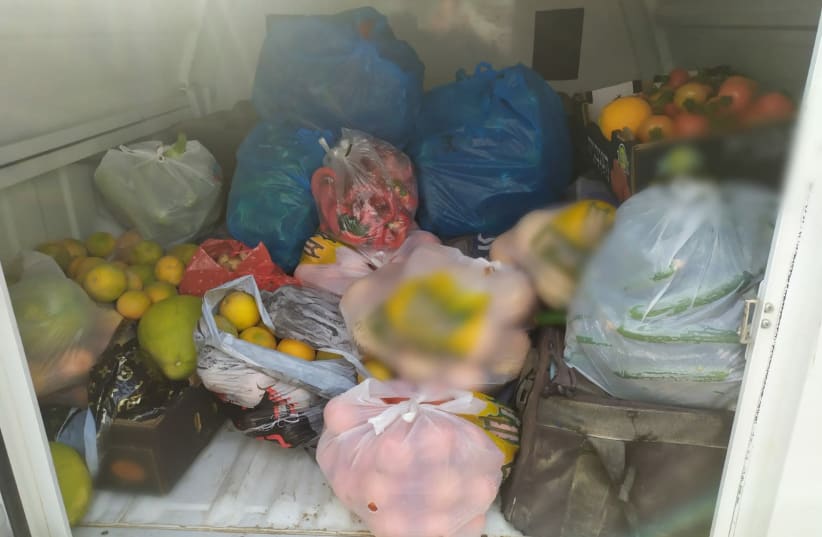Border Police and HaShomer HaChadash volunteers arrested four suspects on Saturday after they were seen stealing 154kg of produce from agricultural fields in the Gaza Strip.
The suspects were caught in the act in two locations as they were noticed by the security forces during regular patrol activities stealing produce and putting it in their vehicle.
Among the produce stolen were oranges, clementines, grapefruits, tomatoes, various kinds of peppers, potatoes, eggplant, lemons and zucchinis.
One of the workers was a resident of the southern settlement of Mivtahim, a second from Ofakim, and two were foreign workers.
Stealing produce is an unfortunately common phenomenon in Israel, the general goal being to steal the items then sell them illegally to merchants and other buyers. In 2019 following a major theft of avocados and watermelons, police released a report detailing that this type of theft has a major impact on the Israeli market and economy.
The problem is not only the damage to the farmers' livelihoods, but also the damage done while illicitly harvesting the crops, which has a knock-one effect on future growth within the fields, hurting both ends of the trade. Often stolen produce can raise overall prices of fruits and vegetables at markets.
Moreover, since the start of the coronavirus crisis farmers in the Gaza area have been struggling financially. In May, President Reuven Rivlin met with farmers from the Gaza border in the Eshkol regional council to hear about their difficulties.
“Coronavirus has opened our eyes to things that were once taken for granted, and we simply forgot them," Rivlin said. He then encouraged Israelis to buy "blue and white" to support the internal Israeli economy. During the pandemic there has been a general call for the public to buy Israeli-made products.
Zachary Keyser and Hagay Hacohen contributed to this report.In November a law was passed enforcing not only the government but also the public sector to prioritize buying Israeli-made products.
The Manufacturers Association supported the move as it would mean that billions of shekels would be put back into the Israeli economy, thus creating much-needed jobs. The Finance Ministry however warned that such a law would mean the state would spend NIS 1.3 billion more at a time when the state is finding it difficult to collect taxes due to the global financial slump. 